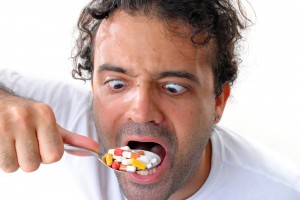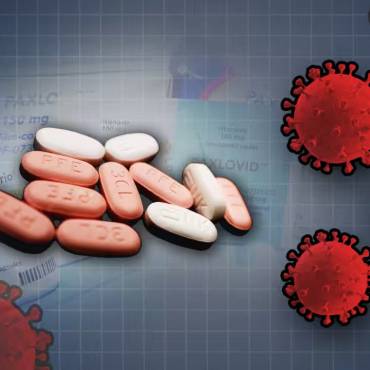 Do you pop pills without consulting your doctor at times, like a painkiller or an antibiotic? Sometimes you might resort to taking a medicine based on your local chemist’s suggestion or go by something a friend or neighbor suggested. It is okay to take medicines on your own at times, but excess of anything is bad. You might be going down the self-medication lane to cure something minor like acidity, a cold, a headache or a fever. But you need to understand that only a doctor knows the pros and cons of a medicine, and the effect it might have on you. Sometimes self medication can go wrong. Also, you might get into a habit and slip into drug abuse, and that can have serious repercussions in the long run.
Do you pop pills without consulting your doctor at times, like a painkiller or an antibiotic? Sometimes you might resort to taking a medicine based on your local chemist’s suggestion or go by something a friend or neighbor suggested. It is okay to take medicines on your own at times, but excess of anything is bad. You might be going down the self-medication lane to cure something minor like acidity, a cold, a headache or a fever. But you need to understand that only a doctor knows the pros and cons of a medicine, and the effect it might have on you. Sometimes self medication can go wrong. Also, you might get into a habit and slip into drug abuse, and that can have serious repercussions in the long run.
If you are going without valid prescriptions and self-medicating often, there’s a chance that you might be doing it wrong, without realizing the gravity of the situation. If you are worried that you, or someone you know, might be overdoing self-administered treatments, here are some warning signs to look out for:
Sign # 1
The first and foremost sign is gradual increase in self-medication. If you have been taking medicines more regularly or increasing your dosage on your own, it is not only an indication of addiction but also shows that your body might be growing immune to a certain medicine and no longer providing you the relief it once used to provide.
Sign # 2
If you are you inclined toward a certain drug in particular, then this preference might not be accidental, but a habit that has cultivated over time in your subconscious mind. Your choice of drug might have provided you relief on one or more occasions, and hence you have that nagging feeling of correcting your imaginary illness. Such self-medication can easily be a form of problematic drug abuse.
Sign # 3
Do you tend to use a medicine even after you feel better? You might be extending your self-medication period without being conscious about it. Do you ever find yourself giving excuses about prolonging the use of a medicine? Do you prefer continued usage in hopes of feeling better? Extending the period of self-prescribed drugs can be extremely harmful to your body and can get you in a bad drug-abuse habit. People who are extremely addicted might also complain about doctors refusing to prescribe them a strong and effective enough medicine and justify their reasons for taking medicines on their own. Make sure you do not fall into any such patterns.
Sign # 4
If you find yourself on long and painful quests to source and obtain medicines on your own, it might be a sign that your self-medication habit is going in the wrong direction and is no longer a harmless act. Without a valid prescription, you might go out of your way to getting a certain medicine, like driving long distances to a pharmacy or a friend who can provide you with your self-prescribed drug.
Sign # 5
Physical signs like bloodshot eyes is an indicator of drug abuse. Also, the eyes could be dilated or smaller than usual. You might also develop constant cough and cold or change in sleeping habits. These might also be warning signs of addiction of self medication.
Sign # 6
Next come behavioral changes. Are you not attending school or college as usual? Has there been a drop in your performance at the workplace? Have your hobbies and interests suddenly changed? Such changes need to be watched and addressed. Make sure you are not neglecting responsibilities, whether at home or outside. Believe it or not, such changes and social withdrawal is common if someone is getting increasingly dependent on self medication.
Sign # 7
You also need to look for psychological warning signs such as anxiety, mood swings or irritability. Excessive self medication can bring about psychological changes over time. Periods of unusual lethargy or hyperactivity are also not normal. If there are any unexplained and sudden changes in your attitude, you need to be self-aware and acknowledge them. All such changes can mean that you might be growing dependent on some drug.
Sign # 8
A lot of people self-medicate themselves with antibiotics in case of infectious diseases. It is common to cite financial constraints stock up on antibiotics. You might even think that it is all under your control and not worth a trip to the doctor’s clinic. Abuse of antibiotics can lead to drug resistance if done for a prolonged period and can harm the body in the long run.
Sign # 9
Do you notice any signs of forgetfulness or increased sensitivity to sounds and emotions? If you feel over-stimulated by your environment or certain things, you might be a victim of drug abuse.
Sign # 10
If you are becoming increasingly dependent on self-medication, you will tend to grow very defensive about the habit. You might feel like you are being attacked if someone points it out to you and try to hide your dependency on self-medication. You might get angry, defensive or lash out unnecessarily. All this further goes to prove that your self-administered treatment is having adverse effects.
Self medication can turn addictive over time and can also have bad effects on your body. Antibiotics can cause serious reactions in the body and result in severe issues.For instance, penicillin abuse could be fatal. You also need to beware of dosage of the medicines you are taking on your own. If you take an incorrect dosage of a medicine, it will not cure your illness and might even make situations worse. While insufficient dosage will prolong your recovery period, over dosage could cause damage to your organs. A lot of antibiotics are known to have adverse effects on the kidneys if taken in incorrect amount. Also, as mentioned before; prolonged use of an antibiotic can lead to drug resistance and the antibiotic will turn ineffective for you.
So something that you probably started to save time or money and get your health back on track can backfire on you anytime. You need to be aware of the adverse effects of self medication and look out for the above-mentioned signs. If you feel you can relate to a lot of these warning signs, then it is time you stop taking medicines on your own and see a doctor.


